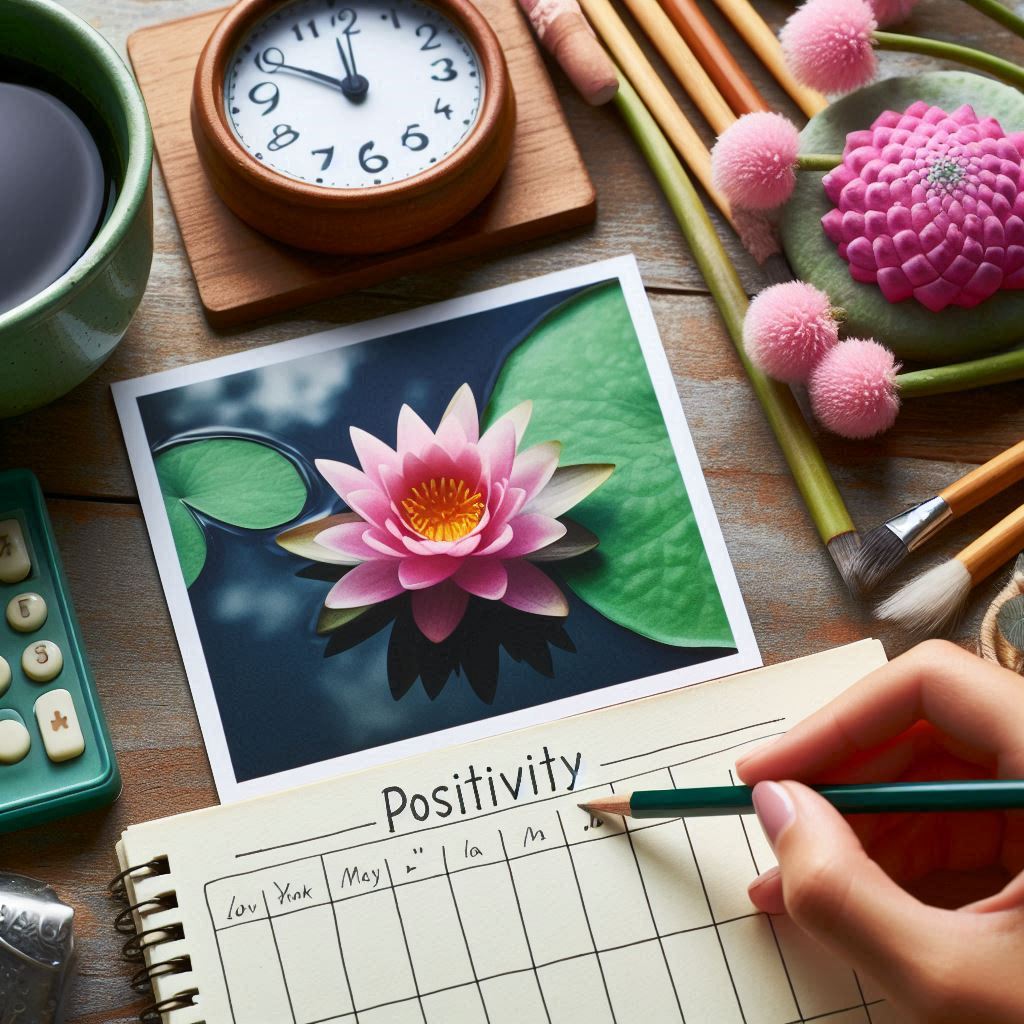The Science of Spirituality
Research increasingly shows that spirituality isn't just a personal belief system—it has measurable effects on our brains and bodies. Scientific studies have revealed several important connections between spiritual practices and well-being:
Enhancing Neuroplasticity
Spirituality is not just about beliefs; it has a profound impact on your mental and emotional well-being. Research shows that engaging in spiritual practices can enhance neuroplasticity, promoting positive thinking and overall mental health. By integrating spirituality into your life, you can create lasting positive changes in how your brain processes experiences and emotions.
When we engage in spiritual practices such as meditation, prayer, or mindful reflection, our brains physically change in beneficial ways:
- Increased gray matter in areas associated with emotional regulation and attention
- Strengthened neural connections in regions related to compassion and empathy
- Reduced activity in the default mode network, which is associated with rumination and anxiety
- Enhanced ability to create new neural pathways that support positive thought patterns
"Neuroplasticity allows the brain to reorganize itself, forming new neural connections throughout life. Spiritual practices can harness this natural capacity, helping to rewire the brain toward greater resilience and wellbeing."
Physiological Benefits
Beyond mental health, spiritual practices have been shown to positively impact physical health markers:
- Reduced stress hormones like cortisol
- Lower inflammation levels throughout the body
- Improved immune system functioning
- Reduced blood pressure and heart rate
- Better sleep quality and duration
These physiological changes may help explain why people who engage in regular spiritual practices often report better overall health and even increased longevity.
"The mind-body connection revealed through studies of spirituality demonstrates that our inner experiences can have tangible effects on our physical health, creating a positive feedback loop of wellbeing."
Meaning and Purpose
One of the most significant benefits of spirituality is its ability to help people develop a sense of meaning and purpose:
- Enhanced ability to find meaning in difficult circumstances
- Greater resilience during challenging life events
- Increased sense of connection to others and the world
- Deeper appreciation for life's experiences, both positive and challenging
- A framework for understanding one's place in the larger context of existence
Research suggests that this sense of meaning and purpose serves as a protective factor against depression, anxiety, and even suicidal thoughts.
"Finding meaning in life is a fundamental human need. Spirituality provides pathways to discover this meaning, offering a sense of purpose that transcends daily challenges and connects us to something larger than ourselves."
Our Spirituality Offerings
At Positive 4 Mind, we offer a variety of resources to support your spiritual journey, whatever form it may take. Whether you're just beginning to explore spirituality or looking to deepen an established practice, our offerings are designed to meet you where you are.
Spirituality Courses
Our courses cover a range of topics, from mindfulness and meditation to exploring different spiritual traditions. Each course is designed to help you connect with your inner self and the universe. Our curriculum includes:
- Foundations of Spirituality: An introduction to core spiritual concepts and practices across traditions
- Meditation for Spiritual Growth: Techniques specifically designed to deepen spiritual awareness
- Exploring Sacred Texts: Insights from wisdom traditions around the world
- Nature-Based Spirituality: Connecting with the divine through the natural world
- Intuitive Development: Cultivating and trusting your inner guidance
Each course combines theoretical understanding with practical exercises, allowing you to integrate spiritual concepts into your daily life.
Inspirational eBooks
Our collection of eBooks provides insights and practical advice on various aspects of spirituality. Whether you're looking to start your journey or deepen your practice, our eBooks are a valuable resource. Popular titles include:
Our eBooks combine accessible writing with practical exercises, making spiritual concepts tangible and applicable to everyday life.
Start Your Spiritual Journey
Ready to embark on your spiritual journey? Visit us at Positive 4 Mind to explore our diverse array of resources and find the perfect spiritual practice tailored to your unique needs and aspirations. Whether you're taking your first steps into the world of spirituality or seeking to deepen your existing practice, Positive 4 Mind is here to support and guide you every step of the way.
Our carefully curated collection of articles, meditation guides, and spiritual exercises are designed to help you navigate the complex landscape of personal growth and self-discovery. From ancient wisdom traditions to modern mindfulness techniques, we offer a comprehensive range of tools to nurture your spirit and elevate your consciousness.
Embrace the transformative power of spirituality and witness the positive changes it can bring to every aspect of your life. With Positive 4 Mind as your trusted companion, you'll gain the insights and practices needed to cultivate inner peace, foster meaningful connections, and unlock your true potential.
Your journey to a positive mind and a fulfilling life starts here. Take the first step towards spiritual enlightenment and personal transformation today. Let Positive 4 Mind be your guiding light as you explore the depths of your inner world and connect with the universal energy that surrounds us all.
Frequently Asked Questions About Spirituality
While religion and spirituality often overlap, they represent distinct approaches to connecting with something greater than ourselves. Religion typically involves organized beliefs, practices, and institutions centered around specific doctrines, texts, and communal worship. It often includes established rituals, moral codes, and formal structures for transmitting teachings across generations. Religions generally offer clear frameworks for understanding the divine, with specific deities, prophets, or sacred figures. Spirituality, by contrast, tends to be more personal and experiential, focusing on individual connection with something transcendent—whether defined as God, the universe, nature, or a higher consciousness. It emphasizes direct experience over dogma and personal exploration over institutional adherence. Many spiritual individuals draw from multiple wisdom traditions, creating personalized practices that resonate with their unique journey. While religions usually provide community and shared identity, spirituality can be practiced either individually or in more fluid communities of like-minded seekers. Neither approach is inherently better than the other—many people find value in both religious traditions and personal spiritual exploration, creating a path that combines structured teachings with individual insight. The most important aspect is finding approaches that authentically nurture your connection to something larger than yourself and support your growth, wellbeing, and capacity for compassion.
Beginning a spiritual journey can feel overwhelming, but there are simple ways to start exploring this dimension of life. First, set aside short periods—even just 5-10 minutes daily—for quiet reflection, mindfulness, or meditation. These moments of stillness help you connect with your inner self and develop awareness beyond the busy mind. Nature often provides an accessible gateway to spiritual experience—spend time outdoors observing the natural world with full attention, noticing how it affects your sense of connection and perspective. Reading can also be valuable; explore books on different spiritual traditions or personal spiritual journeys that resonate with you, approaching them with an open, curious mindset. Pay attention to your dreams, intuitions, and meaningful coincidences, perhaps keeping a journal to track patterns or insights that emerge over time. Practice gratitude by regularly acknowledging what you appreciate in your life, which naturally shifts focus toward abundance and interconnection. Consider exploring different spiritual communities or groups without pressure to commit—attend various services, workshops, or gatherings to see what resonates. Remember that authentic spirituality enhances compassion and connection, so look for practices that develop kindness toward yourself and others. Most importantly, trust your own experience—notice which practices bring genuine peace, insight, or a sense of connection, and let these guide your unique path. Spirituality is highly personal; what works for someone else may not work for you. Be patient with yourself, approach your journey with gentle curiosity rather than rigid expectations, and allow your spiritual understanding to unfold naturally over time.
Spirituality can significantly enhance mental health through multiple pathways that research increasingly validates. Perhaps most fundamentally, spiritual practices often foster a sense of meaning and purpose—factors consistently linked to psychological resilience and reduced depression risk. By providing frameworks for understanding life's challenges within a larger context, spirituality can transform how we perceive difficulties, reducing feelings of victimization and helplessness. Many spiritual traditions emphasize community connections, offering social support networks that buffer against isolation—a major risk factor for mental health difficulties. Contemplative practices common in spiritual paths, such as meditation and mindful prayer, have been shown to reduce stress hormones, lower inflammation, and activate the parasympathetic nervous system, creating physiological conditions that support emotional well-being. Additionally, spiritual perspectives often encourage self-compassion and acceptance, counteracting the harsh self-criticism that fuels anxiety and depression. Many spiritual approaches promote forgiveness—both of self and others—which research links to reduced rumination and improved mood. For those facing existential concerns around mortality or suffering, spiritual frameworks can provide comfort and reduce existential anxiety. Gratitude practices, central to many spiritual traditions, consistently correlate with improved mood and life satisfaction. Perhaps most importantly, spiritual paths typically encourage living according to deeply held values rather than superficial pursuits, leading to greater life satisfaction and congruence. While inappropriate spiritual practices or communities can sometimes negatively impact mental health, research overwhelmingly suggests that thoughtful spiritual engagement can be a powerful resource for psychological wellbeing when approached in ways that respect individual needs and circumstances.
Absolutely—spirituality encompasses far broader territory than theistic belief. Many people experience profound spirituality without conceptualizing a personal God or deity. Numerous established traditions, from certain forms of Buddhism to secular humanism, offer spiritual frameworks that don't center on divine beings. Instead of deity-focused practice, non-theistic spirituality might emphasize connection with nature and the cosmos, exploration of consciousness, ethical development, or the pursuit of transcendent experiences. Many people find deep spiritual meaning in the awe-inspiring vastness of the universe revealed by science, experiencing wonder and reverence without supernatural explanations. Others focus on the interconnectedness of all life, cultivating compassion and ethical responsibility toward other beings. Contemplative practices like meditation can develop awareness and presence regardless of theological beliefs. For some, spirituality manifests through creative expression—art, music, dance, or poetry that accesses dimensions beyond ordinary thinking. Many find that service to others and working toward social justice provides profound spiritual fulfillment through connecting with common humanity. Non-theistic spiritual paths often emphasize direct experience rather than faith, encouraging practitioners to test principles through personal investigation rather than accepting them on authority. What matters most isn't the specific content of beliefs but rather the authentic pursuit of deeper meaning, connection, and values that transcend purely material concerns. The essence of spirituality lies in recognizing and exploring dimensions of existence beyond the limited self—something available to everyone regardless of their theological position. Many atheists and agnostics report rich spiritual lives centered on values, wonder, connection, and the mystery of being, demonstrating that spirituality and non-belief in God are entirely compatible.

